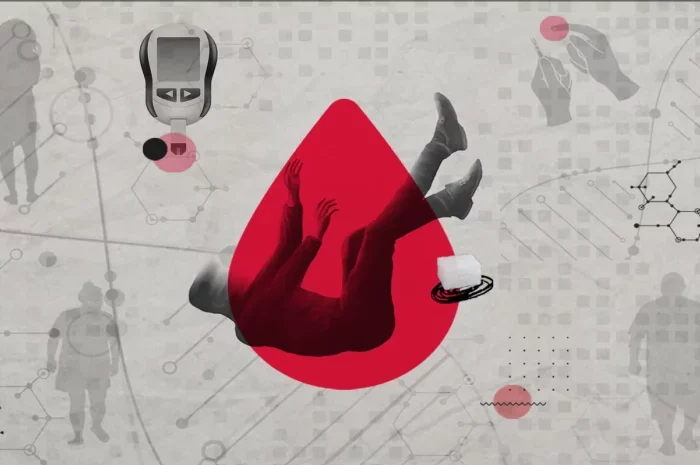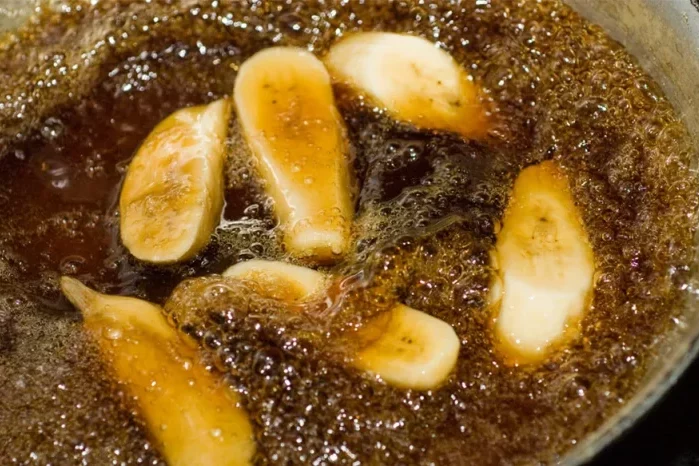Hypoglycemia, characterized by abnormally low blood glucose levels, is commonly associated with diabetes and its treatments. However, hypoglycemia can also occur in individuals who do not have diabetes. Non-diabetic hypoglycemia, or reactive hypoglycemia, is a condition where blood glucose levels drop below normal due to various underlying factors not related to diabetes. This article explores the causes of non-diabetic hypoglycemia, its mechanisms, symptoms, diagnosis, and management strategies, providing a detailed understanding of this condition and its impact on overall health.
Understanding Non-Diabetic Hypoglycemia
Hypoglycemia occurs when blood glucose levels fall below the normal range, typically defined as below 70 mg/dL (3.9 mmol/L). While the majority of hypoglycemic episodes are associated with diabetes and its treatment, non-diabetic hypoglycemia can occur in people without diabetes due to a range of physiological, dietary, and medical factors.
Mechanisms Behind Non-Diabetic Hypoglycemia
To understand non-diabetic hypoglycemia, it is crucial to examine the mechanisms by which blood glucose levels are regulated and what might lead to their dysregulation in the absence of diabetes.
Insulin Regulation and Secretion
Insulin, a hormone produced by the pancreas, plays a vital role in regulating blood glucose levels by facilitating the uptake of glucose into cells and promoting glucose storage as glycogen in the liver and muscles. In individuals without diabetes, insulin secretion is usually well-regulated and balanced. However, disruptions in this balance can lead to hypoglycemia.
Glycogen Storage and Utilization
The liver stores glucose in the form of glycogen and releases it into the bloodstream when needed, such as between meals or during fasting. In cases where glycogen storage or release is impaired, blood glucose levels may drop, leading to hypoglycemia.
Hormonal Regulation
Besides insulin, several hormones, including glucagon, cortisol, and epinephrine, help regulate blood glucose levels. Disruptions in the secretion or action of these hormones can contribute to hypoglycemic episodes.
Causes of Non-Diabetic Hypoglycemia
Non-diabetic hypoglycemia can arise from various factors, including physiological, dietary, and medical conditions. Understanding these causes helps in diagnosing and managing hypoglycemia effectively.
Reactive Hypoglycemia
Reactive hypoglycemia, also known as postprandial hypoglycemia, occurs when blood glucose levels drop after eating, typically within a few hours. This condition is often associated with an exaggerated insulin response to carbohydrate intake.
Pathophysiology: After consuming a meal, particularly one high in simple carbohydrates, blood glucose levels rise. In individuals with reactive hypoglycemia, the body may release an excessive amount of insulin, leading to a rapid drop in blood glucose levels.
Risk Factors: Risk factors for reactive hypoglycemia include high-glycemic index foods, large meals, and frequent snacking. Individuals with certain metabolic disorders may also be predisposed.
Fasting Hypoglycemia
Fasting hypoglycemia occurs when blood glucose levels drop during periods of fasting or prolonged periods without food intake.
Pathophysiology: During fasting, the body relies on stored glycogen in the liver to maintain blood glucose levels. If glycogen stores are depleted or if gluconeogenesis (the production of glucose from non-carbohydrate sources) is impaired, hypoglycemia can result.
Risk Factors: Factors contributing to fasting hypoglycemia include prolonged fasting, excessive alcohol consumption without food, and certain medical conditions affecting glycogen storage or gluconeogenesis.
Medication-Induced Hypoglycemia
Certain medications, including those used to treat non-diabetic conditions, can cause hypoglycemia as a side effect.
Pathophysiology: Medications that stimulate insulin secretion, increase insulin sensitivity, or affect glucose metabolism can inadvertently lead to low blood glucose levels.
Examples: Medications such as some antibiotics, quinine, and certain antidiabetic agents (when used off-label) may cause hypoglycemia.
Hormonal Deficiencies
Hormonal deficiencies or imbalances can disrupt the regulation of blood glucose levels and lead to hypoglycemia.
Adrenal Insufficiency: The adrenal glands produce cortisol, a hormone that helps increase blood glucose levels. Inadequate cortisol production can result in hypoglycemia.
Hypopituitarism: The pituitary gland produces several hormones, including those that regulate adrenal function. Hypopituitarism, or reduced hormone production from the pituitary gland, can lead to cortisol deficiency and hypoglycemia.
Insulinomas
Insulinomas are rare, insulin-secreting tumors of the pancreas that can cause hypoglycemia in individuals without diabetes.
Pathophysiology: Insulinomas produce insulin continuously or inappropriately, leading to persistent hypoglycemia. Symptoms often occur during fasting or periods of increased insulin secretion.
Diagnosis and Management: Diagnosis involves imaging studies and blood tests to identify insulinomas. Treatment typically involves surgical removal of the tumor or other interventions to manage insulin secretion.
Malnutrition and Eating Disorders
Malnutrition and certain eating disorders can lead to hypoglycemia due to inadequate food intake and nutritional deficiencies.
Pathophysiology: Inadequate caloric and carbohydrate intake can deplete glycogen stores and impair glucose production, leading to hypoglycemia.
Examples: Anorexia nervosa, bulimia nervosa, and other restrictive eating disorders can result in hypoglycemia due to irregular or insufficient food intake.
Alcohol Consumption
Excessive alcohol consumption, especially when consumed on an empty stomach or without adequate food intake, can lead to hypoglycemia.
Pathophysiology: Alcohol can inhibit gluconeogenesis in the liver, impairing the body’s ability to maintain blood glucose levels during fasting or prolonged periods without food.
Risk Factors: Risk factors for alcohol-induced hypoglycemia include binge drinking, drinking without food, and consuming alcohol after prolonged fasting.
Medical Conditions Affecting Glucose Regulation
Several medical conditions can interfere with normal glucose regulation and lead to hypoglycemia.
Severe Liver Disease: Conditions such as cirrhosis or hepatitis can impair glycogen storage and glucose production, leading to hypoglycemia.
Renal Failure: Impaired kidney function can affect the body’s ability to regulate glucose levels and lead to hypoglycemia.
Symptoms of Non-Diabetic Hypoglycemia
The symptoms of non-diabetic hypoglycemia can vary depending on the severity and duration of low blood glucose levels. Common symptoms include:
Mild Hypoglycemia: Symptoms may include shakiness, sweating, anxiety, hunger, and difficulty concentrating.
Moderate Hypoglycemia: Individuals may experience confusion, irritability, weakness, and dizziness.
Severe Hypoglycemia: Severe hypoglycemia can result in loss of consciousness, seizures, and in extreme cases, coma.
Diagnosis of Non-Diabetic Hypoglycemia
Accurate diagnosis of non-diabetic hypoglycemia involves a comprehensive assessment of symptoms, medical history, and diagnostic tests.
1. Medical History and Symptom Assessment
A thorough medical history and symptom assessment are essential for diagnosing non-diabetic hypoglycemia. Key aspects include:
Symptom Review: Documenting the frequency, duration, and triggers of hypoglycemic episodes helps identify potential causes.
Dietary and Lifestyle Factors: Assessing dietary habits, alcohol consumption, and fasting patterns can provide insights into possible contributing factors.
2. Blood Glucose Monitoring
Blood glucose monitoring is crucial for diagnosing hypoglycemia and determining its severity. Tests may include:
Fasting Blood Glucose: Measuring blood glucose levels after fasting helps identify fasting hypoglycemia.
Postprandial Blood Glucose: Testing blood glucose levels after meals can help diagnose reactive hypoglycemia.
Continuous Glucose Monitoring: Using continuous glucose monitors can provide real-time data on glucose levels and identify patterns of hypoglycemia.
3. Laboratory Tests
Additional laboratory tests may be conducted to identify underlying causes of non-diabetic hypoglycemia, including:
Insulin Levels: Measuring insulin levels can help determine if excessive insulin secretion is contributing to hypoglycemia.
Hormone Levels: Assessing cortisol, glucagon, and other hormones can help identify hormonal imbalances affecting glucose regulation.
Imaging Studies: Imaging studies, such as CT scans or MRI, may be used to detect insulinomas or other abnormalities.
Management and Treatment of Non-Diabetic Hypoglycemia
Effective management of non-diabetic hypoglycemia involves addressing the underlying causes, implementing lifestyle modifications, and, in some cases, medical treatment.
1. Dietary and Lifestyle Modifications
Dietary and lifestyle changes can play a significant role in managing non-diabetic hypoglycemia:
Frequent Meals and Snacks: Eating smaller, more frequent meals can help maintain stable blood glucose levels and prevent hypoglycemic episodes.
Balanced Diet: Consuming a balanced diet that includes complex carbohydrates, proteins, and healthy fats can help regulate blood glucose levels and prevent rapid fluctuations.
Avoiding High-Glycemic Foods: Reducing the intake of high-glycemic index foods that cause rapid spikes and drops in blood glucose levels can help prevent reactive hypoglycemia.
2. Managing Fasting and Alcohol Consumption
Regular Meals During Fasting: For individuals prone to fasting hypoglycemia, consuming regular meals or snacks during fasting periods can help maintain stable blood glucose levels.
Moderation of Alcohol Consumption: Limiting alcohol intake and consuming alcohol with food can help prevent alcohol-induced hypoglycemia.
3. Medical Interventions
In cases where dietary and lifestyle modifications are insufficient, medical interventions may be necessary:
Medication Adjustments: For individuals taking medications that may contribute to hypoglycemia, adjusting the dosage or switching to alternative medications may be required.
Hormonal Therapy: Hormonal deficiencies may be managed with hormone replacement therapy, such as cortisol replacement for adrenal insufficiency.
Surgical Interventions: For individuals with insulinomas or other tumors affecting insulin secretion, surgical removal of the tumor may be necessary.
See also: Is It Normal to Get Hypoglycemia Without Diabetes?
Conclusion
Non-diabetic hypoglycemia is a complex condition with various underlying causes, ranging from reactive hypoglycemia and fasting hypoglycemia to medication-induced hypoglycemia and hormonal deficiencies. Understanding the mechanisms and causes of non-diabetic hypoglycemia is crucial for accurate diagnosis and effective management. By addressing the underlying factors, implementing lifestyle modifications, and utilizing medical treatments when necessary, individuals can manage non-diabetic hypoglycemia and improve their overall health and well-being.
Related topics:
What Causes Type 1 Diabetes in Adults?



























